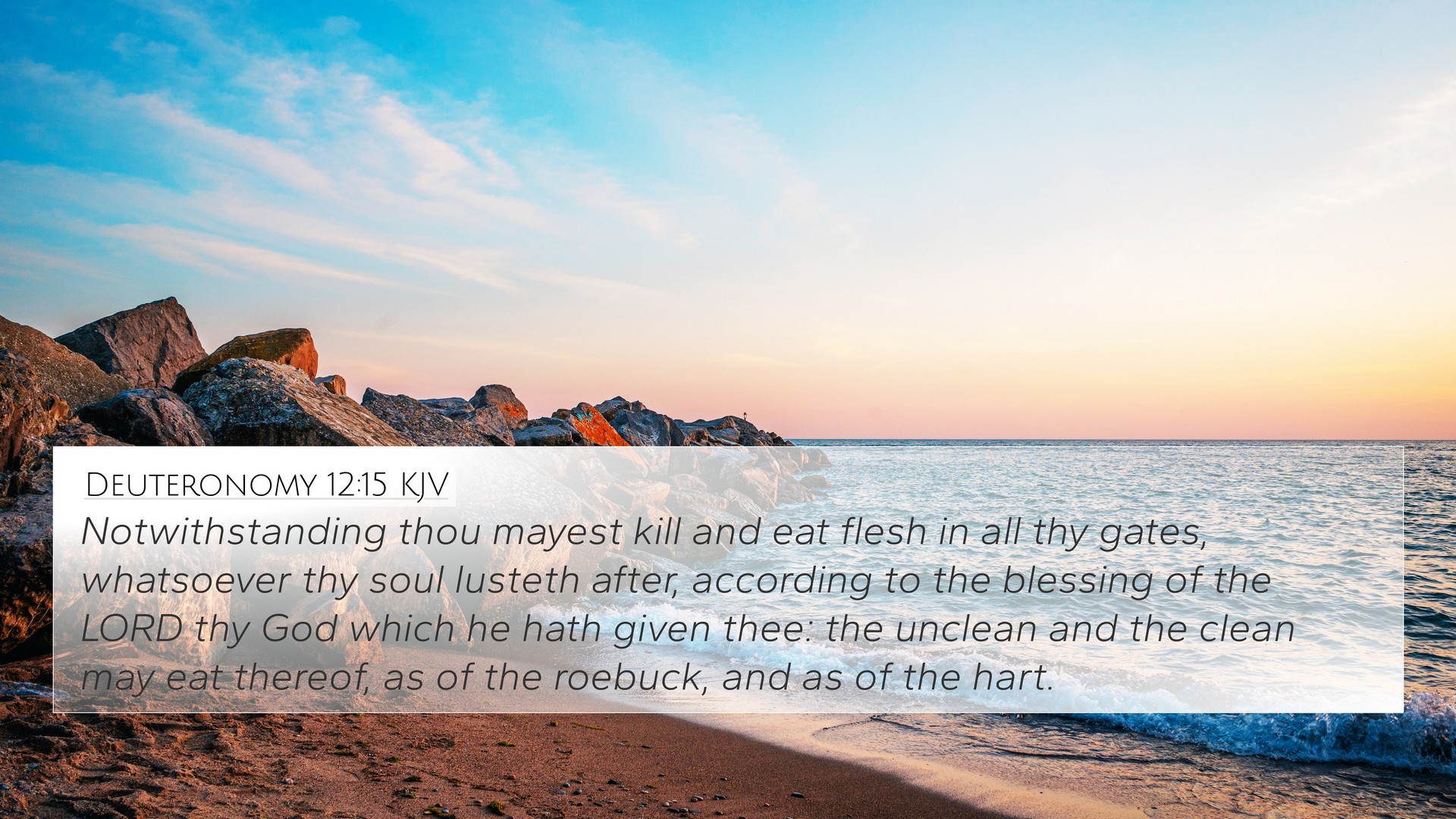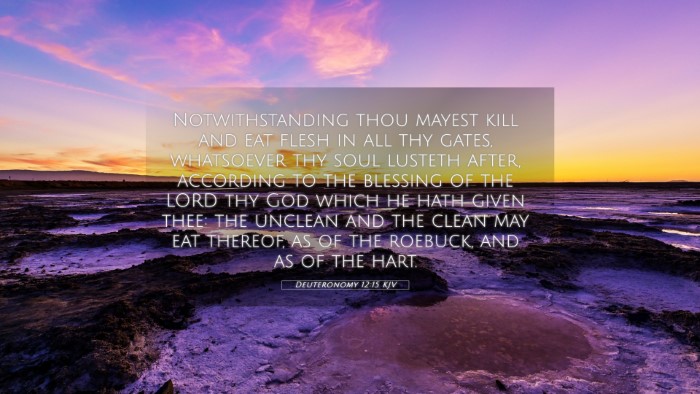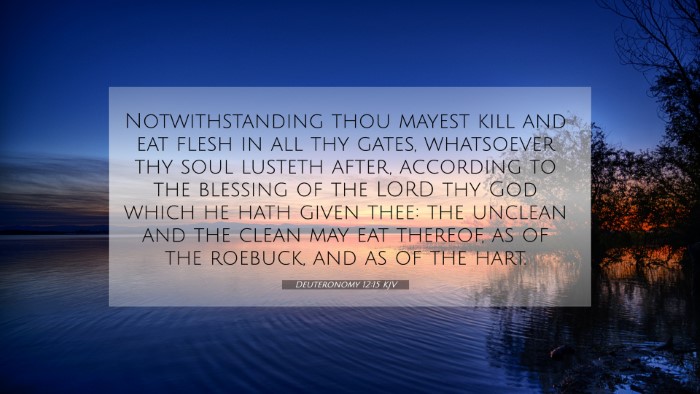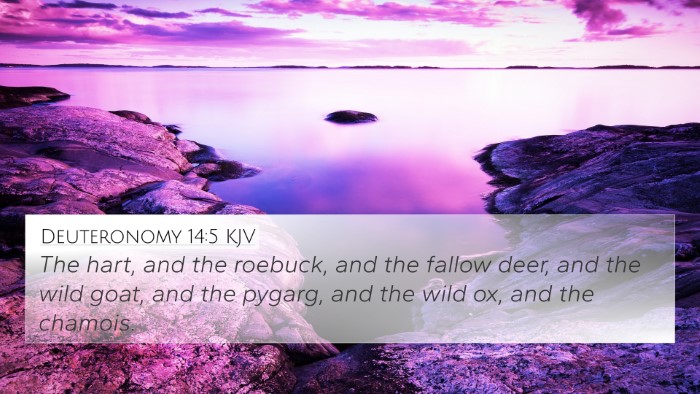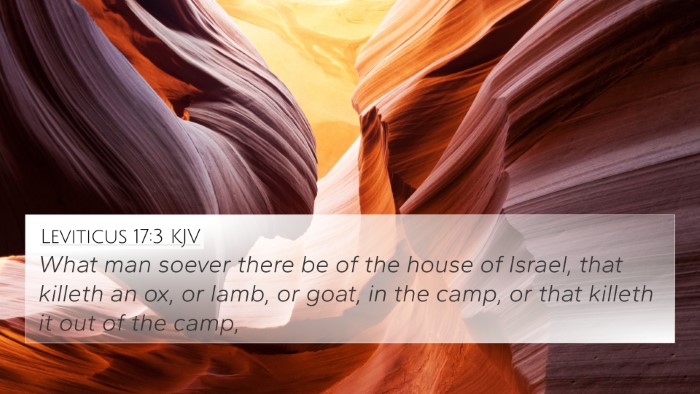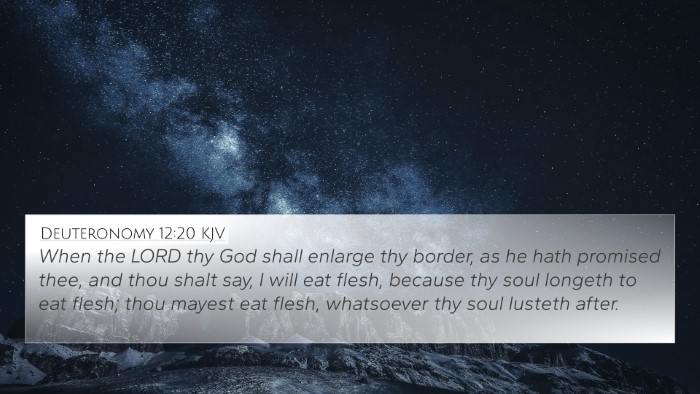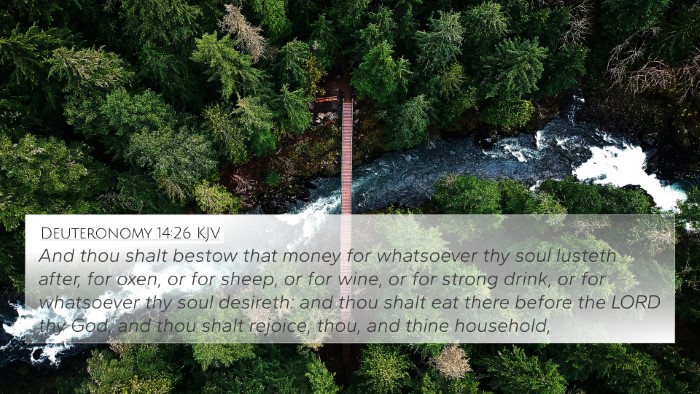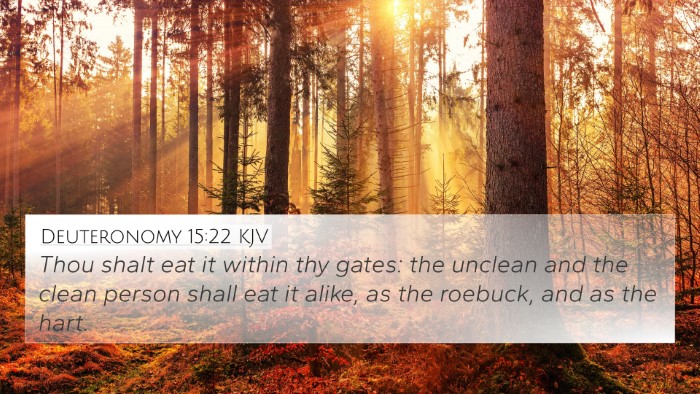Understanding Deuteronomy 12:15
Deuteronomy 12:15 states: "Nevertheless, you may slaughter and eat meat within all your gates, whatever your heart desires, according to the blessing of the LORD your God which He has given you; the unclean and the clean may eat of it, of the gazelle and the deer."
This verse reflects God's provision for His people, allowing them to enjoy the meat of animals that are deemed acceptable. It emphasizes the importance of the heart's disposition in religious practice.
Key Meanings and Insights
According to Matthew Henry, this passage grants the children of Israel the liberty to eat meat, reiterating that God desires their worship to be joyful and their provisions ample. Henry notes that this reflects God’s care for His people, as He allows them to eat according to their desires provided that they do so within His established guidelines.
Adam Clarke adds that the verse underlines the principle of sacrifice and communion with God in the act of eating meat. He points out that the reference to both the clean and unclean signifies that God is accessible to all who approach Him with a sincere heart, thus promoting inclusivity in worship.
Albert Barnes highlights that this passage addresses the practicality of eating meat in daily life while ensuring that the act remains a form of worship. He finds significance in the location of slaughter, emphasizing the communal aspect of sharing God's blessings within one’s own gates.
Bible Verse Cross-References
- Leviticus 17:10-14 - Discusses the prohibition against eating blood and the laws of sacrifice.
- Deuteronomy 14:2 - Speaks to the chosen status of Israel and the implications for their dietary practices.
- 1 Timothy 4:4-5 - Reiterates that everything created by God is good and should not be rejected if received with thanksgiving.
- Romans 14:14 - Discusses the concept of food being clean and reflects on beliefs surrounding dietary laws.
- Acts 10:15 - The vision of Peter which signifies that God has made all things clean.
- Philippians 4:19 - Highlights God’s provision for every need, connecting to the blessings mentioned in Deuteronomy.
- Matthew 15:11 - Jesus teaches that it is not what goes into the mouth that defiles a person, but what comes out of it.
- Psalm 147:9 - God provides food for the young ravens that call upon Him, illustrating His care for all creation.
- Hebrews 13:9 - Encourages believers not to be carried away by various and strange teachings, emphasizing the grace of God.
- John 6:35 - Jesus declares Himself as the Bread of Life, signifying the ultimate provision from God.
Thematic Connections
This passage is thematically significant as it portrays God's desire for His people to experience joy in their provisions while maintaining a heart aligned with His commandments. It highlights:
- Thematic Bible Verse Connections: The underlying theme of provision is repetitive throughout Scriptures, illustrating God’s faithfulness to His covenant people.
- Cross-referencing Biblical texts: In understanding the broader context, the practice of sacrifice and gratitude for God's blessings is a recurring motif, illustrating the relationship between divine provision and communal worship.
- Inter-Biblical Dialogue: The tension between the Old Testament dietary laws and the New Testament teachings provides a fascinating perspective on how followers of Christ approach these scriptures.
Conclusion
In conclusion, Deuteronomy 12:15 serves not only as a guideline for dietary practices but also as a reminder of the joy, gratitude, and reverence that should characterize the believer’s relationship with God. By linking this verse with others throughout the Bible, one can gain a deeper insight into the richness of God’s intentions for His people.
Further Study Tools
If you seek to delve deeper into the connections between Bible verses, consider utilizing:
- Bible Concordance: Tools that help locate specific verses and their themes.
- Bible Cross-Reference Guide: Materials that outline how different scriptures relate to one another.
- Cross-Reference Bible Study: Methods that encourage the examination of scriptures to uncover thematic and doctrinal links.
- How to Use Bible Cross-References: Practical guidance on identifying key verse connections.
- Bible Chain References: Systems that establish links between concepts across different biblical texts.
